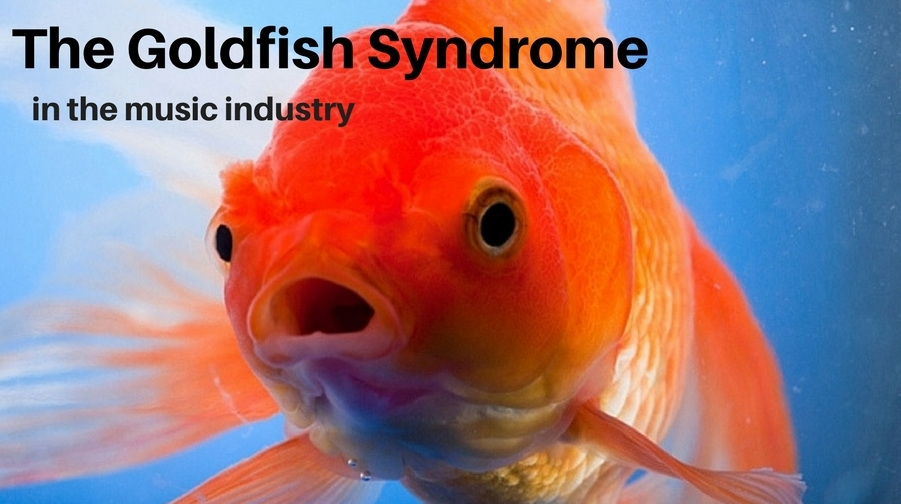The Goldfish Syndrome is Forcing the Music Industry to Evolve
While the music industry, just like many other industry online, is facing challenges in digitizing and distributing music online, labels and music marketers are increasingly looking into new ways that would market music effectively.
While the music industry, just like many other industry online, is facing challenges in digitizing and distributing music online, labels and music marketers are increasingly looking into new ways that would market music effectively.

ow to effective attract music fans in the ever more increasing music sphere where consumers no longer have a long attention span
While study by Microsoft has shown that human has an attention span of merely eight seconds similar to a goldfish, the challenges in a developing and evolving industry such as the music industry remain as a challenge when it comes to feeding content and attracting loyal fan bases within a very short time frame (this is a matter of a few seconds listening to a song or watching a music video).
Last year alone, digital music streaming alone increased by 3.2% of the total industry revenue to $USD15 billion – revenue that cannot be ignored anymore by recording artists. CD sales has already taken the plunge transitioning to music consumption via the internet (digital music distribution) and the comeback of vinyls.
Despite the growing demand to distribute digitally, the need to organise and analyse the incoming data – from the sort of music and genre being consumed, geographical data, age group to when the most popular song is being played. Big data is increasingly used by major labels, digital service providers, promoters and artists to provide accurate and trustworthy algorithms that would transcribe into insightful information when it comes to deciphering artists’ popularity in each region.
Florian Jungbauer, SVP who leads the marketing arm in Greater China, Korea and Southeast Asia of Universal Music Group, shared their strategy at the Digital Marketing & Strategy Innovation Summit in Beijing last year on how big data analysis is being used to prioritise artists development, content & digital marketing and new music innovations. UMG, one of the world’s largest record label and music publisher, sees the importance in reinventing itself as an active player, transform and make calculated executive decisions through big data analysis.
On transitioning from physical to digital consumption, Jungbauer stressed on the importance of establishing the UMG brand that would attract fans’ attention within a short period of time – leveraging on the UMG and artists’ strong relationship and large fan base around the world.
Almost overnight, the boundary to music marketing has become limitless; challenging conservative advertising formats and demanding new and effective cooperation involving many fields of expertise because of the way we consume music. It is indeed a brave new world out there in digital marketing.



![[Music Press Asia] Michelle Yeoh calls for other environmentalist ambassador. Photo credit: National Geograaphic](https://www.musicpressasia.com/wp-content/uploads/2019/09/with-ape-cropped.jpg)




![[Music Press Asia] Michelle Yeoh calls for other environmentalist ambassador. Photo credit: National Geograaphic](https://www.musicpressasia.com/wp-content/uploads/2019/09/with-ape-cropped-150x150.jpg)

![[Goldfish & Blink. Image courtesy of Ultra Music and Rukes]](https://www.musicpressasia.com/wp-content/uploads/2018/09/cropped-150x150.png)

